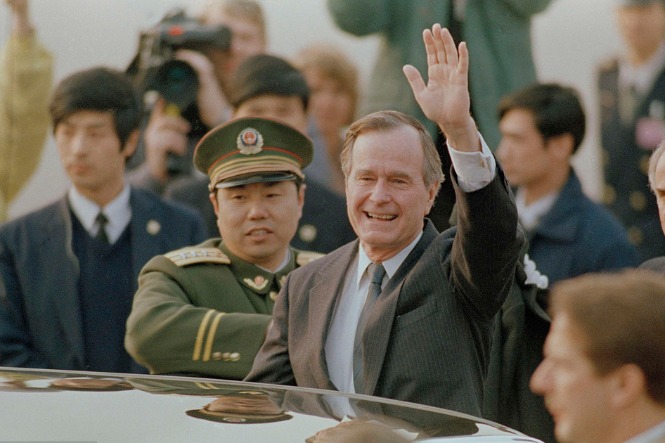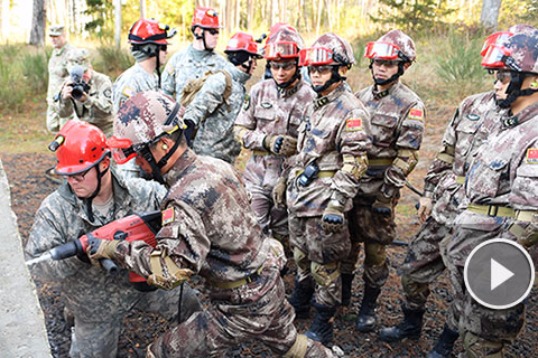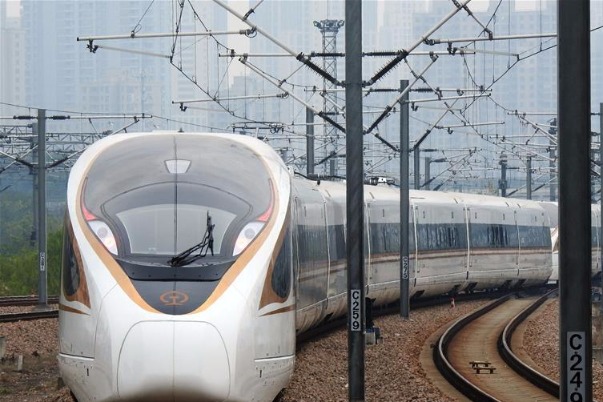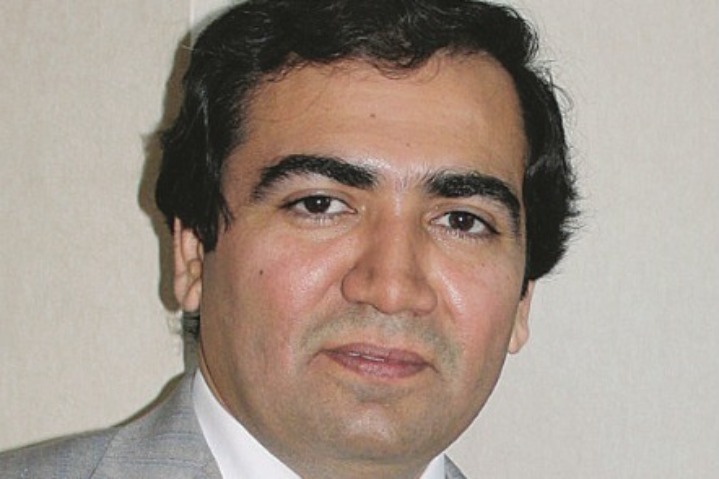Who's Moon is it anyway?
US President Donald Trump's directive to NASA to go back to the Moon and put people on Mars raises all sorts of interesting questions.
Are we on the verge of a new Space Race? And if so, will the advances in technology make it a mad-dash stampede?
Or could this be the opening so many have been waiting for - to finally brush aside the Wolf amendment and allow the US and China to cooperate in outer space?
In 2011, US Republican Congressman Frank Wolf tacked a two-sentence clause onto the funding bill that fuels NASA, saying that no federal funds could be used "to develop, design, plan, promulgate, implement or execute a bilateral policy, program, order, or contract of any kind to participate, collaborate, or coordinate bilaterally in any way with China or any Chinese-owned company".
Never mind that China and the US had already cooperated bilaterally on numerous space projects in the 1990s, including putting Hughes Aircraft and Motorola-designed satellites into orbit on Chinese rockets.
There are still ways around even an impenetrable morass of verbiage like Wolf's.
Jeffrey Manber, CEO of Nanonracks, a privately owned company that supplies hardware for the International Space Station (ISS), which is managed by 15 countries - excluding China, told International Policy Digest, "The Canadians, Russians and Americans would have worked with the Chinese on the ISS but this law forbids it."
But Nanoracks and the Beijing Institute of Technology (BIT) found a back door onto the ISS.
Nanoracks also runs a commercial research facility aboard the space station and last summer, after a monthlong journey aboard Dragon, a cargo spacecraft built by US aerospace manufacturer SpaceX, a BIT experiment was delivered to and set up on the ISS.
Work on the project had started during the Obama administration, and Manber said they never felt the Wolf amendment applied to them. After all, they were a commercial enterprise that did business with 30 countries and used zero tax-payer money.
Then-NASA administrator Charles Bolden even wrote a letter to Congress saying it "complies with the Wolf amendment, NASA was not involved, no technological transfer", Manber said.
The experiment that got China's foot in the door is to investigate how both the lack of gravity and presence of cosmic rays in space affect DNA's molecular mechanics.
The experiment had been carried out previously on three unmanned Chinese spacecraft - Tianzhou-1, Long March-7 and Shenzhou-8 - but having human technicians on hand allowed the experiment to be more complex and productive. Humans help.
Meanwhile, China isn't waiting around to be invited to join the exclusive ISS club (it's the US who has barred them). They are fast at work on their own space station, Tiangong-3, which will be capable of accommodating three full-time astronauts (six while replacements rotate shifts) and start getting pieced together in 2020, operational by 2022.
Tiangong-3 will have multi-purpose onboard facilities and offer micro-gravity experiment opportunities to all UN member states, as well as house a telescope.
And then there's the Moon, which everybody seems interested in. Russia is planning a Moon base, with mining operations to extract ice to obtain water and oxygen, for starters.
The Outer Space Treaty, formally The Treaty on Principles Governing the Activities of States in the Exploration and Use of Outer Space, including the Moon and Other Celestial Bodies (Phew!) was signed in 1967, currently has 107 countries and is basically a ban against putting weapons in outer space or on places like the Moon.
It also forbids any country from staking a claim on any celestial body, like the Moon.
China, the US and the EU, regularly send representatives to conventions of the Moon Village Association, a new international nonprofit whose aim is to create "a partnership larger and stronger than the International Space Station, where different nations, private companies and even philanthropists could collaborate on both the Moon's surface as well as in cis-lunar (between Earth and Moon) space"
So far they have 25 member countries. Romanian cosmonaut and diplomat Dumitru-DorinPrunariu recently told a convention on the peaceful uses of space in Vienna, "After the Belt and Road Initiative, I think China has a space initiative in mind. ... China is strikingly advanced in space activities ...
"Only cooperation in various fields, including space, can make nations know each other better, remove suspicion and gradually build mutual trust," he said.
Contact the writer at chrisdavis@chinadailyus.com


















